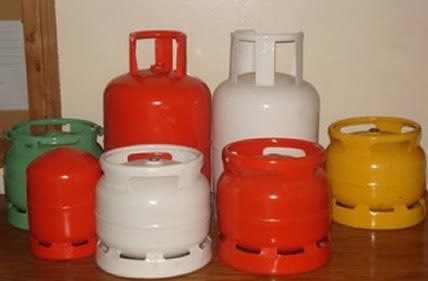In a bid to alleviate the soaring cost of cooking gas in Nigeria, the Federal Government has announced its decision to discontinue the exportation of Liquefied Petroleum Gas (LPG), commonly known as cooking gas, and focus on bolstering domestic supply.
The Minister of State for Petroleum Resources (Gas), Ekperikpe Ekpo, made this declaration during an internal stakeholders’ workshop in Abuja on Thursday.
He emphasised the imperative of increasing the volume of LPG available domestically to drive down prices, citing recent escalations in the cost of refilling a 12.5kg cylinder of cooking gas in major cities like Abuja, Lagos, and Kano.
According to data from the Nigerian Midstream Downstream Petroleum Regulatory Authority, the total consumption of cooking gas in Nigeria has been on the rise, with ambitious targets set to reach five million metric tonnes by 2029. However, the country heavily relies on imports to meet this demand, despite being an exporter of the commodity.
To address this disparity, the government aims to halt the export of over 600,000 metric tonnes of cooking gas, redirecting it to the local market to stabilise prices.
Ekpo revealed ongoing engagements with key industry players, including international oil companies like Mobil, Shell, and Chevron, to ensure compliance with this directive and facilitate price reductions.
Despite previous measures such as tax exemptions on LPG imports, implemented in December 2023 to lower costs, the market witnessed continued price hikes, prompting further government intervention. Ekpo acknowledged challenges in reflecting policy benefits on consumer prices, attributing the discrepancies to profit-maximizing strategies adopted by investors in the sector.
Additionally, the Minister addressed inquiries regarding the adoption of Compressed Natural Gas (CNG) for government vehicles, indicating ongoing efforts to implement the Presidential Initiative on CNG. Nigeria, endowed with vast gas reserves, aims to leverage this resource for economic development and poverty eradication, as emphasized by President Bola Tinubu’s agenda.
The workshop, attended by key regulatory bodies and industry stakeholders, aimed to strategize on repositioning the Nigerian gas sector for optimal performance in alignment with national development objectives. With over 208 trillion standard cubic feet in proven gas reserves,
Nigeria seeks to overcome energy poverty and foster industrial growth through effective utilisation of its gas resources.



